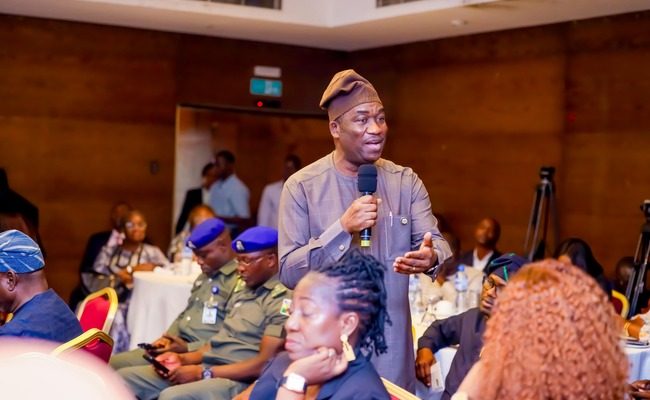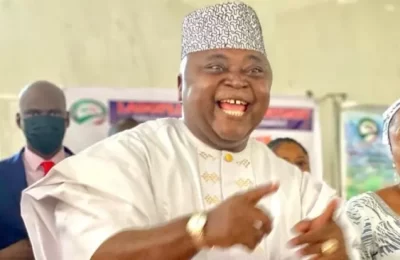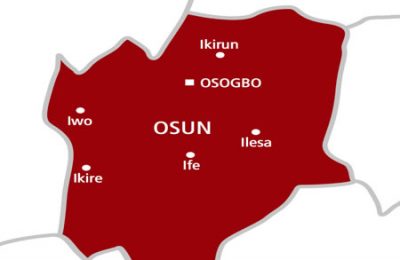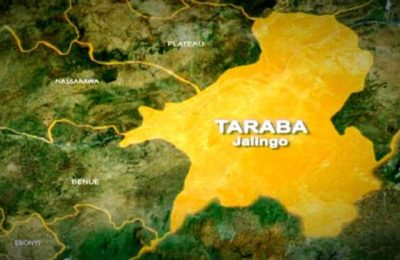Lagos State Government on Wednesday disclosed that it has spent over ₦700 million to assist 2,344 vulnerable residents across the state in 2024, stating that the funds were disbursed to address health needs, accommodation challenges, business support, and school fees for the beneficiaries.
Special Adviser (SA) to the Governor on Political, Legislative, and Civic Engagement, Dr. Afolabi Tajudeen, made this known, while speaking at a Strategic Breakfast Media Chat held at Eko Hotel & Suites, Victoria Island, Lagos, explaining that the initiative was part of the government’s “Sanwo-Olu Listens” programme, designed to alleviate the burdens of vulnerable residents.
According to Afolabi, the core aim of the funds is to directly address the financial and social challenges faced by the most vulnerable residents within the state, and offering them much-needed financial support during difficult times, pointing out that the programme had continued to alleviate poverty and improve the quality of life for those in need, in the context of the ongoing economic difficulties that many Nigerians faced.

“It is a comprehensive and impactful social welfare programme launched by the Lagos State Government under the leadership of Governor Babajide Sanwo-Olu. Its core aim is to directly address the financial and social challenges faced by the most vulnerable residents within the state, offering them much-needed financial support during difficult times.
“In the context of the ongoing economic difficulties that many Nigerians face, the programme has continued to alleviate poverty and improve the quality of life for those in need. Those that have benefitted from the programme include the elderly, low-income earners, persons living with disabilities, indigent students, small scale business owners, the downtrodden, etc,” he said.
Afolabi highlighted the programme’s alignment with the THEMES+ agenda, which prioritises social inclusion and resilience in governance, just as he further disclosed other achievements of his office, including the introduction of Lagos CitizensGate mobile application.

Other initiatives put in place, according to him, include quarterly sensitisation and engagement programmes for community development, the 18th Executive/Legislative Parley, and efforts to strengthen relationships between the executive and legislative arms of government.
Afolabi said the Lagos CitizensGate mobile App promotes transparency and grassroots participation, allowing Lagosians to address complaints, make enquiries, and engage with the government through digital communication, just as he reaffirmed the Governor Babajide Sanwo-Olu’s administration’s commitment to supporting residents amidst economic challenges.
“I want to reiterate that this government is committed to cushioning the effect of the fuel subsidy removal especially on every resident of Lagos State. The government will not relent in its effort to bring relief to residents of Lagos and also maintain peaceful and harmonious working relationships with all stakeholders in the state towards achieving the ‘Greater Lagos Rising’ vision of this administration,” he said.
He expressed appreciation to Governor Sanwo-Olu and his deputy, Dr. Obafemi Hamzat, for their leadership, as well as members of the press for their ongoing support in publicising government initiatives.
The deputy governor underscored the need for improved dissemination of the state government’s achievements and initiatives through the media.
“It is important to have this kind of meeting. A lot of things that we do in Lagos State seem not to be well disseminated,” Hamzat said.
Hazmat, while emphasising the need to focus on developmental issues to move the state forward, however, lamented that discussions often veered away from critical matters.
Highlighting ongoing infrastructural efforts, the deputy governor revealed that Lagos currently had 198 ongoing road projects, saying that a total of seven million Lagosians visited the state’s general hospitals last year to receive treatment.
“We are doing various roads. What exactly does it then mean? Seven million Lagosians visited our general hospitals last year to receive treatment. What then are the issues? The challenge is that things must change,” he said.
Speaking further, Dr. Hazmat drew attention to three major existential threats facing Lagos, including rising water levels, extreme rainfall, and heat.
Citing recent flooding in Spain that claimed over 300 lives, he urged media professionals to prioritise these critical topics in their reporting, saying that they should let the people know, about them.
The deputy governor lauded President Bola Ahmed Tinubu’s vision to build a trillion-dollar economy, describing the resolve as the pathway to lifting Nigerians out of poverty, just as he noted that Lagos should equally aim for innovative solutions to achieve this goal.
“When Tinubu said his administration was to build a trillion-dollar economy, that is the way to go. What is the problem? As a people, we must do something different,” he said.
Pointing to global benchmarks, Hamzat noted that the budget of New York’s police department alone stood at $11 billion, highlighting the gap Lagos and Nigeria must bridge.
“What we should be talking about is the future of money. The good thing is that there are lots of young Nigerians who know this and are making money,” he said.
The Deputy Governor also spotlighted the state’s strides in governance through initiatives like the Lagos Citizen Gate Mobile platform, which enables residents to communicate their concerns directly to the government, describing it as a game changer for the public to interface with the government about their problems that needed to be fixed.
“The Lagos Citizen Gate 2.0 is a game changer for the public to interface with the government. The people tell us their problems, and we fix them,” he noted.
Hamzat, while emphasizing the importance of projecting positive narratives about Lagos and Nigeria as a whole, called for collaboration between government and media practitioners on the need to promote an inclusive governance in the country, saying that such collaboration becomes imperative given the important role the Fourth Realm of Estate plays in nation-building.
The deputy governor emphasized the need for objective reportage, noting that it would be counter-productive if the media was expounding the negatives in their reports.
Citing the example of the narrative that Nigeria’s education was decaying, Hamzat argued to the contrary, saying that if such was the situation, the Western world, particularly, the British and America would not have been “recruiting our teachers, our doctors, and our nurses.”
“We should not succumb to the negative narrative that the Nigerian education system is going down. If our education is going down, why are the Western world, particularly, the British and America recruiting our teachers, our doctors, and our nurses?” This is the kind of label given to us and we gullibly imbibed. I wish the practitioners should engage more in the positivity in our activities, but also report when we are failing.
“The essence is for us to make sure we communicate more. They say our education system is bad, yet our doctors and teachers excel abroad,” he said.
He concluded by urging media stakeholders to amplify messages that inspired progress and unity, fostering a better understanding of the state’s efforts to address challenges and build a prosperous future.
READ MORE FROM: NIGERIAN TRIBUNE







